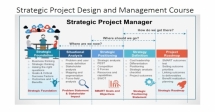|
|
ICT for Disaster Response Course
USD 1,200 |
Venue: Nairobi Kenya
Other Dates
| Venue | Date | Fee | |
|---|---|---|---|
| Nairobi, Kenya | 03 - 14 Mar, 2025 | USD1200 | |
| Nairobi, Kenya | 24 - 28 Mar, 2025 | NGN1200 | |
| Mombasa, Kenya | 21 - 25 Apr, 2025 | USD1200 | |
| Nairobi, Kenya | 05 - 09 May, 2025 | USD1200 | |
| Nairobi, Kenya | 19 - 23 May, 2025 | USD1200 | |
| Dubai, United Arab Emirates | 02 - 06 Jun, 2025 | USD1200 | |
| Nairobi, Kenya | 16 - 20 Jun, 2025 | USD1200 | |
| Nairobi, Kenya | 16 - 20 Jun, 2025 | USD1200 | |
| Nairobi, Kenya | 30 Jun - 04 Jul, 2025 | USD1200 |
In today's world, Information and Communication Technology (ICT) plays a crucial role in enhancing disaster response and management efforts. This course aims to provide participants with a comprehensive understanding of how ICT tools and platforms can be leveraged to improve disaster response operations. Participants will explore various ICT solutions, strategies, and best practices for enhancing communication, coordination, and decision-making during emergencies and disasters. Through a combination of theoretical learning and practical exercises, participants will gain the knowledge and skills necessary to effectively utilize ICT for disaster response and contribute to more efficient and coordinated disaster management efforts.
Course Objectives:
- Understand the Role of ICT in Disaster Response: Gain insights into the role of ICT in disaster response and management, including its potential benefits and challenges. Learn about the various ICT tools, technologies, and platforms commonly used in disaster response operations.
- Enhance Communication and Coordination: Explore how ICT can facilitate communication and coordination among disaster response agencies, first responders, and affected communities. Learn how to leverage ICT tools such as mobile phones, social media, and geographic information systems (GIS) for real-time information sharing and situational awareness.
- Improve Decision-Making and Resource Allocation: Discover how ICT can support decision-making processes during disaster response operations. Learn how to use data analytics, mapping tools, and predictive modeling techniques to assess risks, prioritize actions, and allocate resources more effectively.
- Strengthen Community Engagement and Resilience: Explore strategies for using ICT to engage and empower affected communities in disaster preparedness, response, and recovery efforts. Learn how to leverage social media, crowdsourcing platforms, and community-based networks to enhance resilience and promote self-reliance.
- Develop ICT-Based Disaster Response Plans: Gain practical skills in developing ICT-based disaster response plans and strategies. Learn how to integrate ICT solutions into existing emergency management frameworks and protocols to improve overall response effectiveness and efficiency.
Organization Benefits:
- Improved Disaster Response Capabilities: Equip organizations with the knowledge and skills to leverage ICT effectively in disaster response operations, leading to more efficient, timely, and coordinated responses to emergencies and disasters.
- Enhanced Situational Awareness: Utilize ICT tools and platforms to gather, analyze, and share real-time information about disaster events, enabling better decision-making and resource allocation by response agencies and authorities.
- Strengthened Interagency Collaboration: Facilitate communication and coordination among different response agencies and stakeholders through ICT-enabled collaboration platforms and information-sharing mechanisms.
- Increased Community Engagement: Engage affected communities in disaster response efforts through ICT-based communication channels, empowering them to contribute to their own safety and resilience.
- Enhanced Preparedness and Resilience: By integrating ICT into disaster preparedness and response plans, organizations can improve overall readiness and resilience to disasters, minimizing the impact on lives, property, and infrastructure.
Target Participants:
This course is designed for disaster management professionals, emergency responders, ICT specialists, government officials, NGOs, and anyone involved in disaster response and management efforts. It is suitable for participants at all levels of experience who seek to enhance their knowledge and skills in leveraging ICT for disaster response.
Course Outline:
Module 1: Introduction to ICT for Disaster Response
- Role and significance of ICT in disaster response
- ICT tools and technologies for disaster management
- Challenges and opportunities in ICT-enabled disaster response
Module 2: Communication and Coordination
- ICT-based communication platforms and protocols
- Real-time information sharing and situational awareness
- Coordination mechanisms among response agencies and stakeholders
Module 3: Decision-Making and Resource Allocation
- Data analytics and predictive modeling for decision support
- Resource tracking and management using ICT solutions
- Geospatial analysis and mapping tools for resource allocation
Module 4: Community Engagement and Resilience
- ICT-enabled community engagement strategies
- Social media and crowdsourcing in disaster response
- Building community resilience through ICT-based initiatives
Module 5: Developing ICT-Based Disaster Response Plans
- Integrating ICT into disaster response planning and protocols
- Developing ICT-based emergency communication and notification systems
- Training and capacity-building for effective ICT-enabled disaster response
Course Booking
Please use the “book now” or “inquire” buttons on this page to either book your space or make further enquiries.
| Nairobi Kenya | May 05 - 09 May, 2025 |
| Nairobi, Kenya | 03 - 14 Mar, 2025 |
| Nairobi, Kenya | 24 - 28 Mar, 2025 |
| Mombasa, Kenya | 21 - 25 Apr, 2025 |
| Nairobi, Kenya | 05 - 09 May, 2025 |
| Nairobi, Kenya | 19 - 23 May, 2025 |
| Dubai, United Arab Emirates | 02 - 06 Jun, 2025 |
| Nairobi, Kenya | 16 - 20 Jun, 2025 |
| Nairobi, Kenya | 16 - 20 Jun, 2025 |
| Nairobi, Kenya | 30 Jun - 04 Jul, 2025 |
| USD 1,200.00 | (Course fees) |
Amos Mwangi/ Paul Njuguna +254 746 038 012/ +254714541257
Related Courses
 Tendering, Procurement and Negotiation Skills Course
Tendering, Procurement and Negotiation Skills Course
5 days, 14 - 18 Apr, 2025
Soaring Skills Training Institute Ltd
 Strategic Project Design and Management Course
Strategic Project Design and Management Course
5 days, 14 - 18 Apr, 2025
Soaring Skills Training Institute Ltd
 Strategic Sourcing the Optimum Approach to Buying Course
Strategic Sourcing the Optimum Approach to Buying Course
5 days, 21 - 25 Apr, 2025
Soaring Skills Training Institute Ltd
Currency Converter




